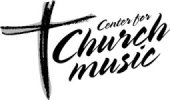Center For Church Music, Songs & Hymns

Browse Hymns:
Browse by:
We Invite You To Sing
To sing with us, 1) Click on the music thumbnail icon to view the sheet music (you don't have to read music!), and 2) Engage the audio file by clicking on the Real audio or Mp3 file.
Find Songs And Hymns
John Calvin

- Birth: July 10, 1509, Noyon, France
- Death: May 27, 1564, Geneva, Switzerland
As a young man, John Calvin was a good scholar, and his father encouraged him to study law. Calvin's interests, however, focused on the humanities. He studied the Greek language, giving him the ability to read the New Testament in its original language.
Through his careful reading of the Greek Scriptures, Calvin felt that God was calling him to a simpler form of Christianity than that of the Catholic Church. His studies and ideas provided the basis for Calvinist Protestants in Holland and Scotland, the Huguenots in France, and the Puritans of England.
Calvin became a strong supporter of congregational singing. He transferred singing in the church from the clergy to the congregation. And he also printed the Strasbourg Psalter of 1539, which consisted of eighteen psalm versions, thirteen of them by Clement Marot and the other five attributed to himself.
Later, the Genevan Psalter was published as well, providing an enlarged version of the Strasbourg Psalter. The Genevan included additional psalm versions, including ones by Louis Bourgeois, a colleague of Calvin.
In the preface to the 1543 Genevan Psalter, Calvin clearly stated his support for singing. He wrote about two kinds of prayer-one with words alone, the other with singing. He went on to say that "singing has great force and vigor to move and inflame the hearts of men to invoke and praise God." And further "to have songs...which will be like spurs to incite us to pray to and praise God, and to meditate on his works in order to love, fear, honor and glorify him."

